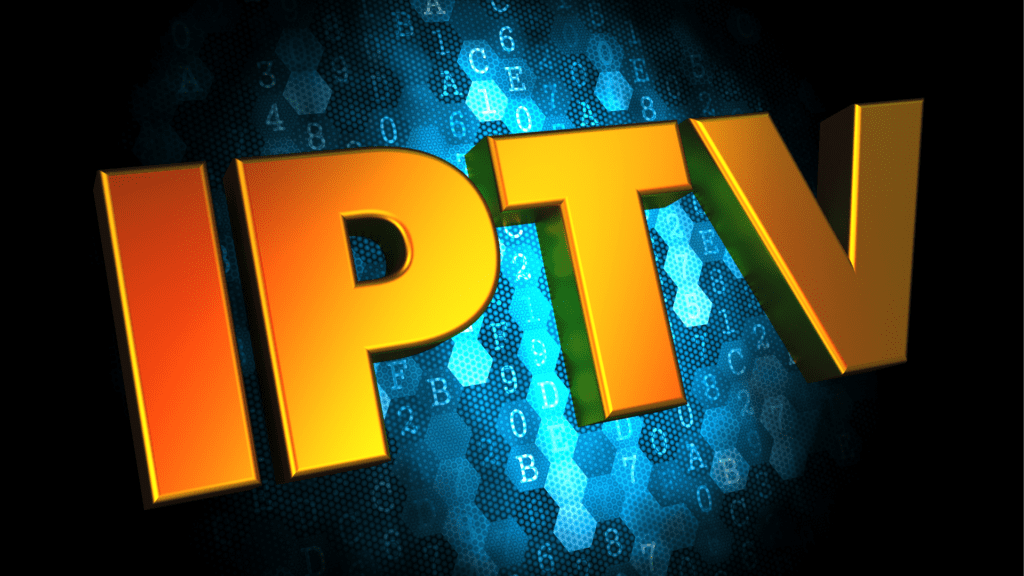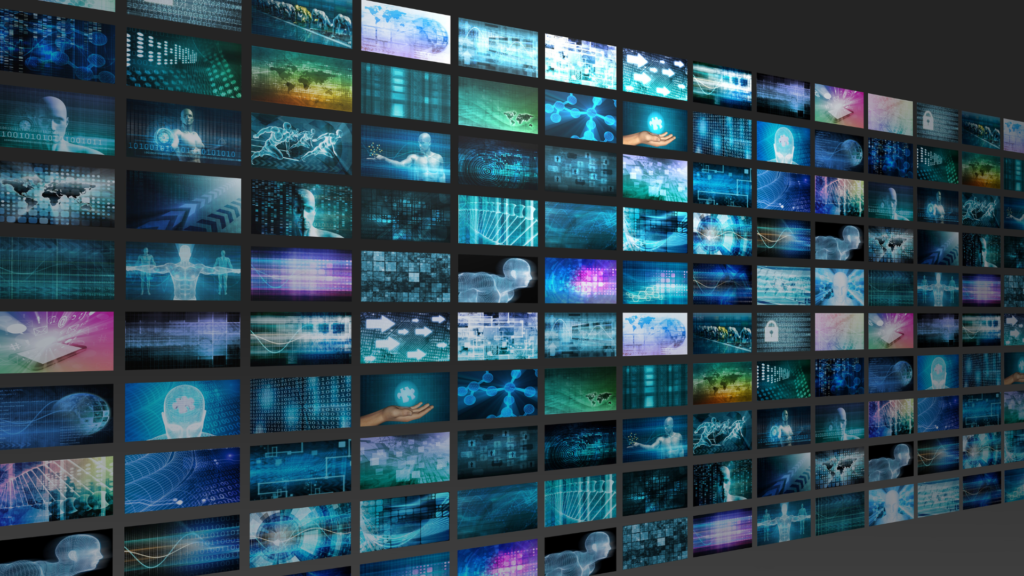In the ever-evolving landscape of television broadcasting, two prominent technologies have emerged as major contenders: Internet Protocol Television (IPTV) and Cable TV broadcasting services.
While both offer access to a wide range of television content, they operate on distinct infrastructures and delivery mechanisms.
In this exclusive and comprehensive article, we delve into the fundamental differences between IPTV and Cable TV broadcasting services, exploring their respective features, advantages, and limitations.
IPTV: Harnessing the Power of the Internet
IPTV leverages the internet protocol (IP) network to deliver television content to users’ devices.
Unlike traditional Cable TV, which relies on dedicated coaxial cables and infrastructure, IPTV utilizes broadband internet connections to transmit video streams in real-time.
This allows users to access live TV channels, on-demand videos, and interactive multimedia content over the internet, without the need for specialized hardware or equipment.
Cable TV Broadcasting: A Legacy Infrastructure
Cable TV broadcasting services, on the other hand, utilize coaxial cables and cable infrastructure to deliver television signals to users’ homes.
These signals are transmitted through cable lines and received by set-top boxes or cable modems installed in users’ premises.
Cable TV providers typically offer bundled packages that include TV channels, internet access, and sometimes phone services, delivered through a single coaxial cable connection.
Content Delivery Mechanism
One of the primary differences between IPTV and Cable TV broadcasting services lies in their content delivery mechanisms:
IPTV: With IPTV, television content is delivered over an IP-based network, such as the internet or a private network.
This enables users to access TV channels and content from any location with an internet connection, using a variety of devices, including smart TVs, streaming devices, computers, and mobile devices.
Cable TV Broadcasting: Cable TV relies on a dedicated cable infrastructure to deliver television signals to users’ homes.
This infrastructure consists of coaxial cables, cable headends, and distribution nodes, which transmit TV signals to subscribers through cable lines connected to their premises.
Channel Selection and Customization
Another key difference between IPTV and Cable TV lies in the flexibility and customization options available to users:
IPTV: IPTV services often offer a wider range of channel options and customization features compared to Cable TV.
Users can choose from various channel packages, on-demand content libraries, and interactive features, such as video-on-demand (VOD), catch-up TV, and personalized recommendations.
Cable TV Broadcasting: While Cable TV providers offer bundled channel packages, users have limited flexibility in customizing their channel lineup.
Additional channels or premium content may require subscription upgrades, and on-demand content options may be more limited compared to IPTV.
Quality of Service and Reliability
Both IPTV and Cable TV broadcasting services strive to provide high-quality television content and reliable service to their users:
IPTV: IPTV services offer high-definition (HD) and sometimes even ultra-high-definition (UHD) video quality, depending on the user’s internet connection speed and the capabilities of their viewing device.
However, the quality of IPTV streams may be affected by factors such as network congestion, bandwidth limitations, and internet service provider (ISP) performance.
Cable TV Broadcasting: Cable TV services traditionally deliver high-quality video and audio signals through dedicated cable lines, resulting in reliable and consistent performance.
Cable TV signals are less susceptible to internet-related issues such as buffering or latency, making them a preferred choice for users who prioritize stability and reliability.
Cost and Pricing Structure
When comparing IPTV and Cable TV broadcasting services, cost is an important factor to consider:
IPTV: IPTV services often offer competitive pricing plans and flexible subscription options,
allowing users to choose the channel packages and features that best suit their budget and viewing preferences.
Some IPTV providers offer à la carte channel selection, allowing users to pay only for the channels they want to watch.
Cable TV Broadcasting: Cable TV services typically come with fixed monthly fees for bundled channel packages, internet access, and other services.
While cable TV may offer more predictable pricing and fewer hidden fees compared to IPTV, users may find it less cost-effective, especially if they only watch a limited number of channels.
Access and Availability
Accessibility and availability are crucial factors when comparing IPTV and Cable TV broadcasting services:
IPTV: One of the key advantages of IPTV is its accessibility from virtually anywhere with an internet connection.
Users can access IPTV services on a wide range of devices, including smart TVs, computers, smartphones, and tablets.
This flexibility allows users to enjoy their favorite TV content at home, on the go, or while traveling, as long as they have an internet-enabled device.
Cable TV Broadcasting: Cable TV services are typically limited to specific geographic regions where cable infrastructure is available.
Users must have access to a cable connection in their area to subscribe to Cable TV services.
While Cable TV coverage is widespread in many urban and suburban areas, rural areas may have limited access to cable infrastructure, restricting availability.
Interactive Features and Additional Services
In addition to traditional TV channels, both IPTV and Cable TV broadcasting services offer interactive features and additional services to enhance the viewing experience:
IPTV: IPTV services often include interactive features such as video-on-demand (VOD), catch-up TV, and interactive program guides (EPG).
Some IPTV providers also offer advanced features like cloud DVR,
multi-screen viewing, and personalized recommendations based on user preferences and viewing history.
Cable TV Broadcasting: While Cable TV services may offer some interactive features, they are generally more limited compared to IPTV.
Cable TV providers may offer on-demand content and program guides,
but the range of interactive features is typically more limited.
Additionally, Cable TV services may offer additional services such as internet access and phone services as part of bundled packages.
Regulatory Considerations and Licensing
Both IPTV and Cable TV broadcasting services are subject to regulatory oversight and licensing requirements:
IPTV: IPTV services may be subject to regulations governing internet services and telecommunications, depending on the jurisdiction.
IPTV providers must comply with licensing agreements and copyright laws to ensure the legal distribution of TV content. Additionally,
IPTV services may face challenges related to net neutrality regulations and internet traffic management practices.
Cable TV Broadcasting: Cable TV services are regulated by government agencies responsible for telecommunications and broadcasting.
Cable TV providers must obtain licenses and permits to operate their cable infrastructure and broadcast TV signals.
Additionally, Cable TV providers must comply with content licensing agreements and copyright laws to ensure legal distribution of TV content.
Future Trends and Technological Advancements
Looking ahead, both IPTV and Cable TV broadcasting services are expected to evolve with advances in technology and changing consumer preferences:
IPTV: IPTV services are likely to continue innovating with new features and technologies,
such as 4K and HDR video streaming, immersive audio formats, and augmented reality (AR) experiences.
Additionally, IPTV providers may explore partnerships with content creators and distributors to offer exclusive content and original programming.
Cable TV Broadcasting: Cable TV providers may invest in upgrading their infrastructure to support higher resolutions and faster internet speeds, enabling the delivery of high-definition and ultra-high-definition TV content.
Additionally, Cable TV providers may explore partnerships with internet service providers (ISPs) to offer bundled services and integrated solutions.
Conclusion
In conclusion, while IPTV and Cable TV broadcasting services share some similarities in terms of delivering television content to users,
they operate on different infrastructures and delivery mechanisms, each with its own set of features, advantages, and limitations.
IPTV harnesses the power of the internet to offer flexibility, customization, and on-demand access to TV content, while Cable TV broadcasting services rely on dedicated cable infrastructure to provide reliability and stability.
By understanding the differences between IPTV and Cable TV,
users can make informed decisions based on their preferences, budget, and viewing habits.


